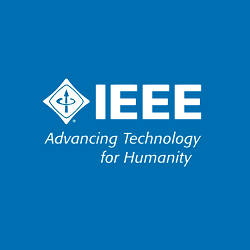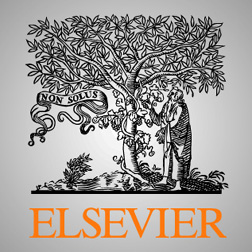دانلود ترجمه مقاله اعتماد به خدمات تراکنشی در دولت الکترونیکی – مجله IEEE
| عنوان فارسی مقاله: | نقش اعتماد به خدمات تراکنشی در دولت الکترونیکی : مطالعه ادراکات شهروندان در کشورهای مکزیک و آمریکا |
| عنوان انگلیسی مقاله: | Trust in E-Government Transactional Services: A Study of Citizens’ Perceptions in Mexico and the U.S |
| دانلود مقاله انگلیسی: | برای دانلود رایگان مقاله انگلیسی با فرمت pdf اینجا کلیک نمائید |
| سال انتشار | ۲۰۱۰ |
| تعداد صفحات مقاله انگلیسی | ۸ صفحه |
| تعداد صفحات ترجمه مقاله | ۲۱ صفحه |
| مجله | کنفرانس بین المللی علوم سیستم هاوایی |
| دانشگاه | دانشگاه ایالتی کالیفرنیا دومینگز هیلز |
| کلمات کلیدی | – |
| نشریه IEEE | IEEE |
فهرست مطالب:
چکیده
۱ مقدمه
۲ پیشینه نظری
۱ ۲ اعتماد در واسطه ارائه خدمات آن لاین
۲ ۲ اعتماد در آژانس دولتی
۳ ۲ نقش اعتماد و تجربه در معاملات آن لاین
۴ ۲ اختلافات اعتماد در میان کشورها
۳ چارچوب تحقیق
۴ روش
۱ ۴ نمونه های بررسی
۲ ۴ توسعه ابزار
۳ ۴ تحلیل داده
۴ ۴ داده های نامعلوم
۵ نتایج
۱ ۵ آماره های توصیفی
۲ ۵ برآورد مدل مسیر چند گروهی
۳ ۵ نتایج مدل مسیر چند گروهی
بحث عمومی
۶ مبانی تحقیق و تجربه
۷ محدودیت ها
۸ نتایج
بخشی از ترجمه:
مقدمه
علی رغم پیشرفتهای مهم در عرضه دولت الکترونیکی، تحقیقات انجام شده نشان می دهد که حتی در کشورهای رهبر جهان در سیستم های دولتی، شهروندان از محاسن خدمات دولت الکترونیکی استفاده نمی کنند. بر طبق Pew Internet و American Life Project آمریکائیان از طریق تلفن و نه اینترنت با دولت تماس حاصل می کنند. همچنین، در اروپا، شهروندان (بیش از ۵۰ درصد از بزرگسالان) از خدمات دولتی از طریق کانال های تحویل سنتی ( چهره به چهره، تلفن،فاکس و میل) استفاده می کنند. تحقیقات نشان می دهد شهروندان سهولت زمان و مکان خدمات آن لاین را درک می کنند، اما افراد زمانی که معامله دربرگیرنده افشاء اطلاعات مالی و شخصی باشد ،روشهای تحویل سنتی را ترجیح می دهند. در کشورهای غیر صنعتی، اطلاعات کمی در مورد کاربرد خدمات دولتی الکترونیکی منتشر شده است. به منظور درک و پی بردن به عوامل اجتماعی اقتصادی تاثیرگذار بر توسعه و اجرای موفق راهکارهای دولتی معطوف به سمت شهروندان و موسسات تجاری (مثلاً ثبات و پایداری سیاسی، مقررات بودجه، چارچوب های قانونی، تقسیم بندی دیجیتالی، فرهنگ نقدی) تحقیقاتی انجام شده است. در زمینه شناسایی عوامل وابسته به بهره گیری از خدمات دولتی الکترونیکی ، پیشرفت های قابل توجهی صورت گرفته است. یکی از عوامل مهم اعتماد می باشد. عناصر کلیدی تصمیم گیری شهروندان برای مشارکت در معاملات آن لاین عبارتنداز: اعتماد در آژانس مسئول ارائه خدمات و اعتماد در پایایی واسطه ارائه خدمات. اعتماد از یک مولفه فرهنگی نیز بهره می گیرد و به همین خاطر در میان جوامع مختلف متفاوت می باشد. به طور مثال، مشتریان اصلی تجارت آن لاین در کشورهای بیزار از ریسک (مثلاً کشورهای آمریکای لاتین) برای توانایی (یا صلاحیت) فروشنده آن لاین ارزش زیادی قایل شده و تلاش می کنند قوانینی وضع کنند که احساس امنیت و بهنجاری در مورد بازده معامله آن لاین حاصل گردد ( مثلاً اطلاعات دست دوم، امنیت شخص ثالث، درجه بندی رضایتمندی مشتری و مواردی از این دست). همچنین، در کشورهایی که فساد در بخش خدمات عمومی گسترده است، خدمات معاملاتی دولتی الکترونیکی با بی اعتمادی اولیه درک می شود.
۸٫ نتایج
نتیجه اصلی اقتباس شده از مطالعه حاضر آن است که یکی از ابعاد مهم بهره برداری از خدمات دولت الکترونیکی، اعتماد نام دارد. در محیط میان فرهنگی، نتایج این مطالعه نشان می دهد مکانیسم هایی که شهروندان راجه به بهره برداری از خدمات دولت الکترونیکی قضاوت می کنند عبارتنداز اعتماد به صلاحیت و نوع دوستی دولت، جابجایی داده های معاملاتی و اعتماد به واسطه ارائه خدمات الکترونیکی. اما، اثر اعتماد بر بهره برداری از خدمات دولت الکترونیکی بسته به محیط های فرهنگی متغیر می باشد. اگرقرار باشد دولتها نوع تبدل و تغییرات موثرجهت ارتقاء ادراکات مربوط به شرایط دولت الکترونیکی را تحقق بخشند، آنگاه لازم است توجه خاصی به اعتماد معطوف گردد. با این حال در این حوزه نیاز به دانش و درک بیشتری می باشد. در مکزیک، تحقیق راجع به دولت الکترونیکی و تلاشهای سیاست عمومی بر اساس تقاضای دولت الکترونیکی نقطه شروعی برای ظهور تلقی می گردد. همانند آمریکا، مطالعه حاضر مبنایی برای تداوم تلاش و جستجو برای شناخت اعتماد به ارائه خدمات دولت الکترونیکی مهیا می سازد. ویژگیهای فرهنگی و فردی کاربران اصلی و تکراری خدمات دولت الکترونیکی اعتماد را به یکی از چالش های اصلی برای موفقیت راهبردهای ارائه خدمات دولت الکترونیکی در جهان تبدیل می کند.
بخشی از مقاله انگلیسی:
Introduction
Despite the important progress in the supply of e-government, research shows that citizens are not employingthe promised benefits of e-government services, even in countries that lead the world in egovernment systems.According to the Pew Internet and American Life Project Americans are more likely to contact the governmentvia telephone rather than through the Internet [1]. Similarly, in Europe, citizens show a higher preference(more than 50% of adults) to use government services through traditional delivery channels (face-to-face,telephone, fax and mail) [2, 3]. Research suggests that citizens perceive the convenience of time and locationof online services, but individuals tend to prefer traditional ervice delivery methods when the transactioninvolves disclosure of personal and financial information. In less industrialized countries, little publishedinformation exists about individuals’ use of e-government services. Research has mostly been conducted tounderstand the socio-economic factors that impact the successful development and implementation of egovernmentinitiatives directed to citizens and businesses (e.g.political stability, budgetary regulations,legislative and regulatory frameworks, digital divide, cash culture) [4, 5]. Considerable progress has been madein the identification of factors associated with the utilization of egovernment services [1, 2, 6-9]. Oneimportant factor is trust. Trust in the agency providing the service and trust in the reliability of the servicedelivery medium are key elements in the citizens’ decision to engage in online transactions [9-13]. Trust has acultural component and therefore can vary across societies [14]. For example, potential customers of onlinebusinesses in risk averse countries (e.g. Latin American countries) tend to more deeply value the ability (orcompetence) of the online vendor, and strive for clear rules that provide a feeling of security and normalityabout the outcome of the online transaction (e.g. second hand information, third party securityseals, customersatisfaction ratings, etc.) [15, 16]. Similarly, e-government transactional services might be perceived withinitial distrust in countries where corruption in the public service is a widespread and pervasive practice [17,18]. However, notwithstanding the important advances in research on trust, little has been said about trust inthe context of e-government transactions. Moreover, what is found generally applies to the context of a small number of countries; trust perceptions across countries. Research is needed to gain a clearer understanding ofthe association between trust and e-government service utilization and whether differences exist across culturalsettings. E-government services have been found to improve perceptions and attitudes about the governmentperformance, to help to decrease corruption and to increase trust in public institutions[6]. The purpose of thispaper is twofold. First, this study investigates possible variations in the relationship between trust andutilization of e-government services from the point of view of citizens in two different cultural settings:México and the U.S. Second, this study examines the relationship between online shopping experience withtrust and service utilization. The level of familiarity and experience with online transactions has also beenidentified as critical for trust and service utilization. Experienced online shoppers are usually more confident oftheir skills to buy online products, and therefore, they might be more likely to interact with the governmentthrough the Internet [21]. Specifically, this study addresses the following research questions:1. Does trust in the online service delivery channel impact the utilization of e-government services acrossthe two countries?2. Does trust in the government agency impact the utilization of e-government services across the two1. countries? 2. Do expertise and familiarity with the online environment affect trust in relation to the utilization ofelectronic government services?México, a society commonly characterized for resisting technological innovation [22], with a slower rate ofadoption of e-commerce transactions in contrast to the U.S. [23], presents an important opportunity to identifyvariations that could exist in the ways citizens establish trust in e-government transactions. This study usestheoretical guidance from the e-commerce literature to extend what it is known about trust in informationtechnologies. Specifically, this study contributes with a cross-cultural perspective that considers theperspectives of citizens in two different cultural settings.The relationships between the different elements oftrust, online shopping experience and service utilization are explored across four transactional services: vehicleregistration/renewal, traffic/citation payment, vital event certificates request (e.g. birth, certificates, marriagecertificates, etc.), and federal income tax filing/payment services.2. Theoretical BackgroundTrust in online transactions has been widely discussed in e-commerce [24-26]. However, a few studies haveanalyzed the role of trust plays in e-government services [7, 12, 13, 18, 27-29]. In e-government research, trustis understood as a combination of beliefs about the attributes of the government agency, and the transactionchannel that supports the delivery of services (e.g. the Internet and e-government kiosks) [7]. Trust is criticalfor the utilization of e-government since e-government services request personal information from citizens[13].Distrust in e-government services has been related to citizens’concerns about having less privacy, hackersbreaking into government computers, and isuse of personal information by government agencies or publicservants. The following subsections provide a discussion on 1) trust in the online service delivery medium, 2)trust in the government agency, 3)experience with online transactions, and 4) trust differences across countries.
| عنوان فارسی مقاله: | نقش اعتماد در خدمات معاملاتی دولت الکترونیکی: مطالعه ادراکات شهروندان در کشورهای مکزیک و آمریکا |
| عنوان انگلیسی مقاله: | Trust in E-Government Transactional Services: A Study of Citizens’ Perceptions in Mexico and the U.S |




